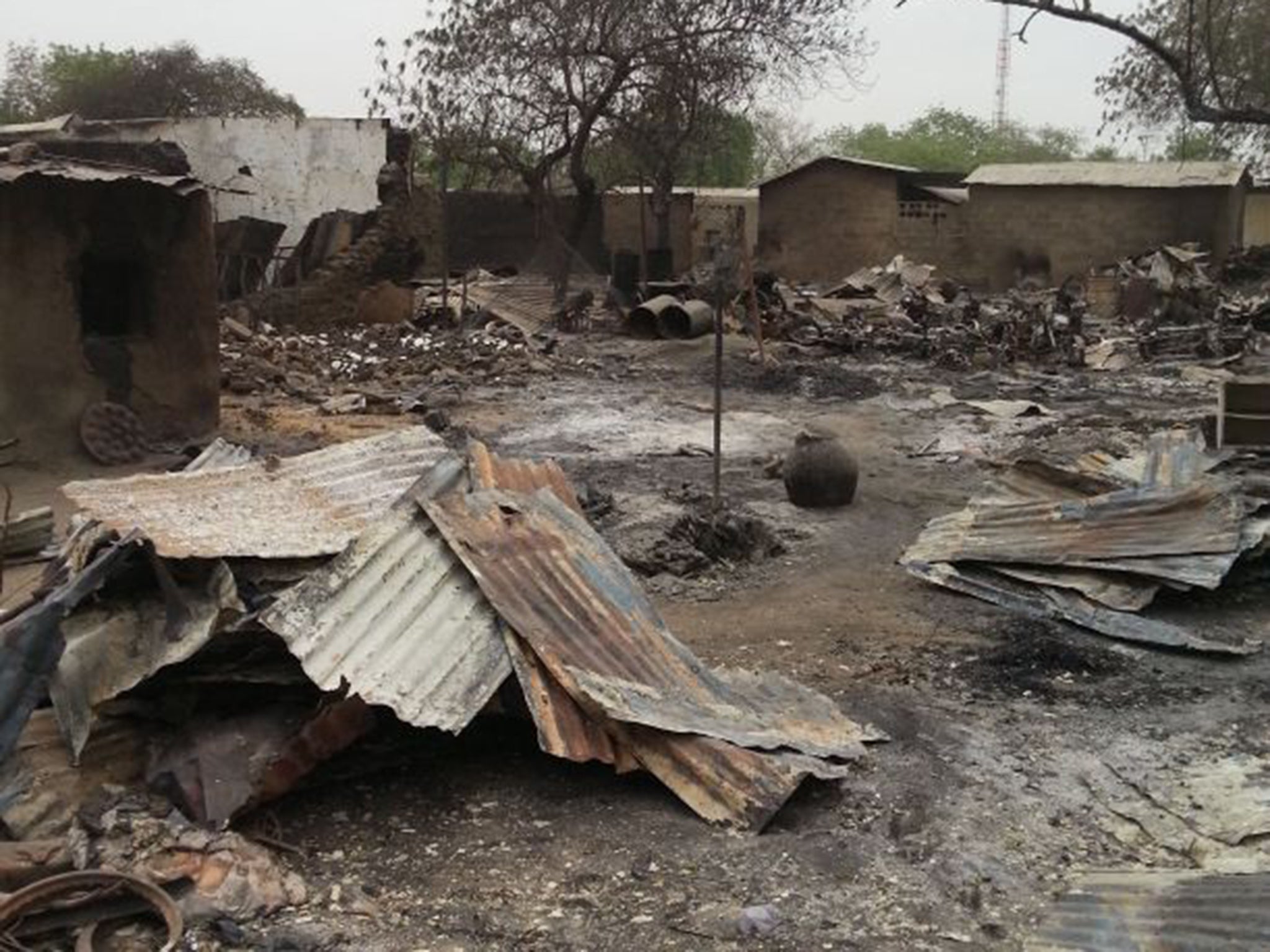Boko Haram have just murdered 2,000 people - so why aren't we talking about it?
How and when the terrorists will be defeated nobody knows, meanwhile the bodies keep piling up

On Saturday, Boko Haram murdered 2,000 people. Amnesty International called it the "deadliest massacre" in the history of the extremist group. Homes were burnt down and buildings destroyed as corpses of men, women and children lay in the street. A survivor harrowingly spoke of 'stepping on dead bodies' as he escaped. Those that could grabbed what they could and fled.
The attack has been described as "heartbreaking," "barbaric," and "senseless". And it is. But it won't change anything in Nigeria.
The attack took place in Baga, a town in the non-oil producing, non commercial north-east of the country, a region that has felt the brunt of the Boko Haram insurgency. There's an uncomfortable truth about Nigeria: division runs deep, and the lives of northerners are seemingly not as valuable as southerners. Had these attacks had taken place in Nigeria's oil hub Port Harcourt or the commercial centre, Lagos, would they slip under the radar so easily? Would the victims be so easy to forget? I doubt it.
Then there's President Jonathan. He swiftly offered his condolences to the French over the Charlie Hebdo attack, but has yet to make an official comment on the slaughter of his own people. But why would anyone expect anything less? This is after all the same President who took 98 days to meet the parents of the Chibok girls and who 48 hours after a bomb blast killed dozens in Nyanya, was photographed dancing at a rally in Kano.
Under Jonathan's watch, Boko Haram have killed thousands and left more than a million people displaced. When the President does acknowledge the carnage, the response is almost always the same. “We will bring justice to the savage terrorists known as Boko Haram,' he said in his new year's address. “They will be defeated.”
How and when, nobody knows, meanwhile the bodies keep piling up.
There is seemingly no concrete strategy or plan to combat the insurgency. The army is in crisis. Soldiers have openly complained about corruption within the ranks, lack of equipment and low morale, to no avail. 54 soldiers were recently sentenced to death for mutiny. In an open letter to the President, an army officer warned that if these issues were not addressed 'there will be no country called Nigeria.'
Jonathan's failures are clear but they will not make him unelectable.
And what of Nigerians? Why no marches? No riots?
It's not that no one cares. They do. But Nigerians, known for their collective forgetfulness, have the uncanny ability to 'suffer and smile' as the late Fela Kuti aptly put it. No one is more aware of the bloodshed than Nigerians, but hearing about raised towns and bomb blasts has become eerily routine. Bad things happen and it's crazy, but hey, that's Nigeria for you. God will see us through.
International condemnation has come in thick and fast with calls on the Western media to increase its coverage of the savagery, and for Western leaders to act. Unless Boko Haram expand their reach, the West will not benefit from intervening in the conflict, so there will be more outrage, more condemnation, more talk but little to no action. But even if the West do get involved, at what cost? Are we really ready for another Libya or Afghanistan?
With the Presidential election weeks away attention has already shifted away from Baga and the political manoeuvring is in full swing. The opposition is using the attack as proof of Jonathan's ineptitude and the country's need for change, and the Presidency is arguing the statistics of the dead have been 'exaggerated' in a bid to derail Jonathan's campaign. It is predicted to be a tight race.
And what of the dead? There will be no marches for them. No memorials. Like Damaturu, Gajihana, Gwoza and dozens before them, the names of the towns will be forgotten, the names of the victims will remain unknown. In the south, life will go on. A resolute few will continue to demand justice, until the victims are replaced by others and a new trending topic starts. Nigerians have seen this movie before and sadly they will see it again.

Join our commenting forum
Join thought-provoking conversations, follow other Independent readers and see their replies